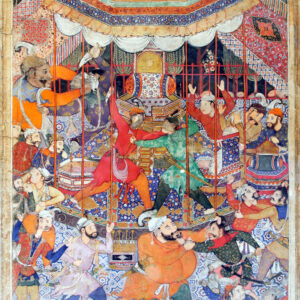“Asteroid of the Damned” is a science fiction novella co-authored by Frederik Pohl and Dirk Wylie, originally published in 1951. Frederik Pohl, a prominent figure in science fiction literature, was known for his prolific writing career and contributions to the genre as both an author and editor. This story explores themes of interplanetary travel, criminal enterprises, and the complexities of law enforcement in a futuristic setting.
While “Asteroid of the Damned” may not have had a significant impact on the genre compared to some of Pohl’s other works, it exemplifies his talent for crafting engaging narratives within the science fiction realm. Pohl’s influence on the genre as a whole, however, is undeniable, with his works often exploring social and political themes through speculative fiction.
Overall, “Asteroid of the Damned” contributes to Pohl’s legacy as a foundational figure in the science fiction genre and serves as a testament to his skill as a storyteller.
Dirk Wylie, born Joseph Harold Dockweiler (1920 – August 1948), was a notable figure in science fiction as both an author and a literary agent. He was a member of The Futurians, a prominent science fiction fan community of the 1940s. Dockweiler attended Brooklyn Technical High School, where he befriended fellow student Frederik Pohl. He contributed to the genre through fanzines like Fantasy Mirror and collaborated on stories with Pohl, Arnold Kummer Jr., and Cyril M. Kornbluth. Dockweiler was also involved in left-wing groups like the Committee for the Political Advancement of Science Fiction (CPASF). During World War II, he served as a sergeant and suffered a spinal injury, spending two years in a Veterans Administration hospital. In 1947, he and Pohl established the Dirk Wylie Literary Agency. Dockweiler passed away in August 1948 due to tuberculosis of the spine.
It’s possible that the continuation of the pen name “Dirk Wylie” after Dockweiler’s death was related to the authors’ joint literary agency. Since Pohl and Dockweiler were partners in the agency, they may have decided to maintain consistency in their published works under the pseudonym, especially if they had ongoing commitments or contracts associated with that name. Exact details could not be ascertained.






Reviews
There are no reviews yet.